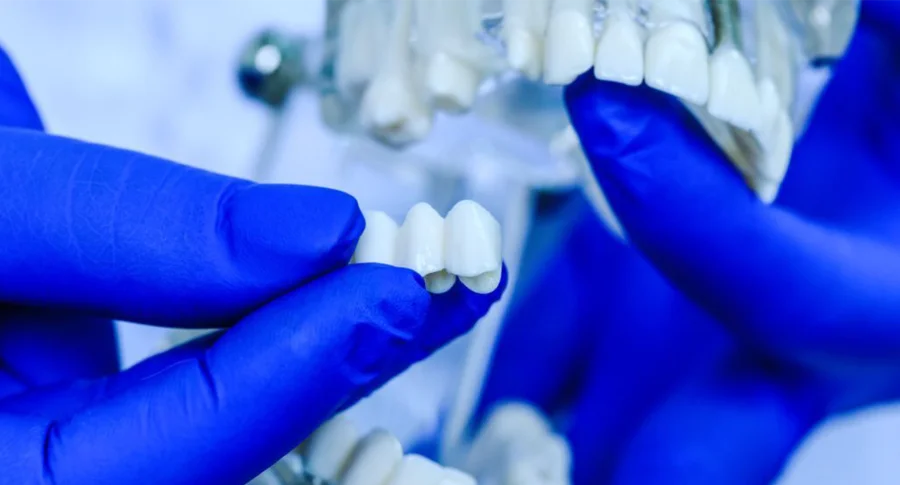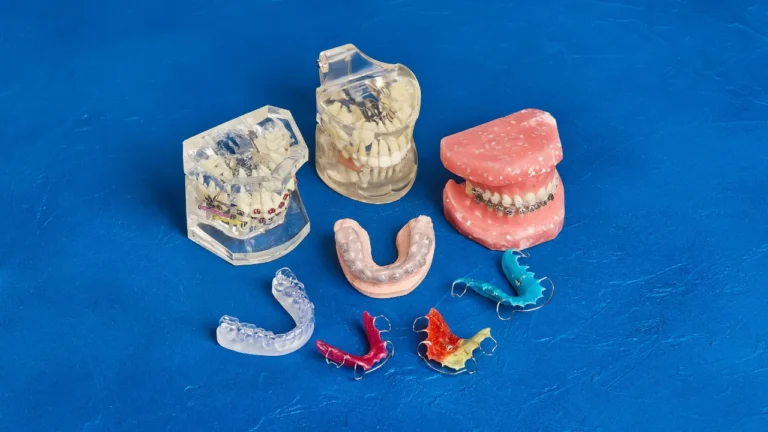Yes, dental bridges can be repaired in certain cases.
The type of repair needed will depend on the specific issue with the bridge, but some common repairs include replacing a missing crown or re-cementing a loose bridge.
Dental bridges are a popular solution for replacing missing teeth, as they are relatively affordable and easy to install.
But like any dental restoration, they require proper maintenance to ensure their longevity.
What can damage dental bridges?
While dental bridges are designed to be durable, they can still be damaged by various factors, including:
- Trauma: A blow to the mouth or face can dislodge or fracture a dental bridge.
- Decay: If the abutment teeth or gums surrounding the bridge are not adequately cleaned, cavities can develop and weaken the bridge’s support.
- Wear and tear: Over time, the forces of biting and chewing can cause the bridge to wear down or become loose.
- Poor oral hygiene: Neglecting to brush and floss regularly can lead to the accumulation of plaque and bacteria, which can cause gum disease and other dental problems that affect the bridge’s stability.
Can dental bridges be repaired?
The answer is usually yes, depending on the extent and type of damage.
Minor chips or cracks can often be repaired by adding new material to the affected area or smoothing out rough edges.
If a pontic falls off, it can be re-cemented onto the abutment teeth.
However, if the damage is severe, such as a broken or missing abutment tooth, the bridge may need to be replaced entirely.
The success of a dental bridge repair depends on several factors, including the age and condition of the bridge, the materials used, and the skill of the dentist performing the repair.
When is it time to replace a dental bridge?
While dental bridges can last for several years with proper care, there comes a time when they need to be replaced.
Here are some signs that may indicate it’s time to get a new bridge:
- Recurrent damage: If your bridge keeps breaking or becoming loose despite repairs, it may be time for a replacement.
- Discomfort: If your bridge causes pain, irritation, or sensitivity, it may not fit properly and require adjustment or replacement.
- Poor fit: If your bridge feels loose, wobbly, or unstable, it may have become worn down or damaged beyond repair.
How to prevent dental bridge damage?
Prevention is always better than cure, so here are some tips to help you keep your dental bridge in good condition:
- Brush and floss regularly: Use a soft-bristled brush and fluoride toothpaste to clean your teeth and bridge twice a day. Floss or use an interdental brush to remove plaque and food particles from the gaps between the teeth.
- Use a mouthguard: If you engage in sports or other activities that could damage your teeth, wear a custom-fitted mouthguard to protect your bridge and other teeth from impact.
- Avoid hard and sticky foods: Hard and sticky foods such as ice, hard candy, popcorn kernels, and taffy can damage or dislodge a dental bridge. Cut up harder foods into smaller, bite-sized pieces to minimize the risk of damage.
- Visit your dentist regularly: Schedule regular checkups with your dentist every six months to ensure that your dental bridge and oral health are in good condition. Your dentist can detect any problems early on and recommend appropriate treatment before they become more severe.
Take away
Dental bridges can be a great option for replacing missing teeth, but they do require proper care and maintenance to last for years to come.
By following the tips above and staying vigilant about your oral health, you can minimize the risk of damage to your dental bridge and enjoy a healthy, beautiful smile.
And remember, if you do experience any issues with your dental bridge, don’t hesitate to contact your dentist for advice and treatment options.





